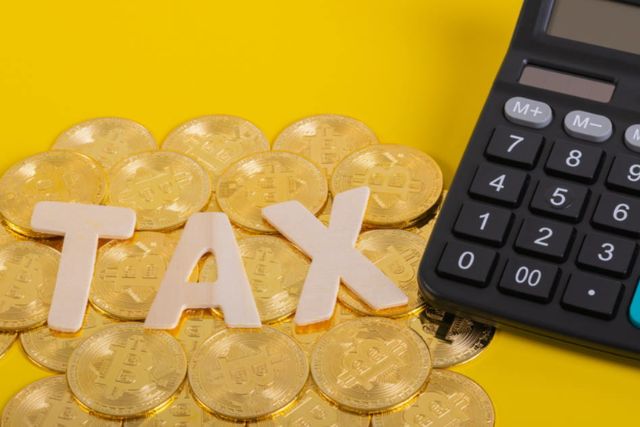With the rise of cryptocurrencies and their increasing popularity, questions about taxation on crypto assets have become more prevalent. India, as one of the largest economies in the world, has been closely monitoring the growth of cryptocurrencies and considering the implementation of taxation policies. In this article, we will explore the current status of crypto taxation in India, the government’s perspective, proposed changes, compliance steps, and the impact on crypto investors and traders.
Understanding Cryptocurrency and Taxes
Before delving into the details of crypto taxation in India, it’s essential to understand what cryptocurrencies are and how they are treated from a tax perspective. Cryptocurrencies are digital or virtual currencies that use cryptography for security. They operate on decentralized networks, allowing for secure and transparent peer-to-peer transactions. However, when it comes to taxes, cryptocurrencies are considered assets or properties rather than traditional currencies.
Current Status of Crypto Taxation in India
As of now, India does not have specific regulations or guidelines regarding the taxation of cryptocurrencies. This lack of clarity has led to confusion among crypto enthusiasts and investors. However, it’s important to note that the absence of explicit regulations does not mean crypto transactions are tax-free. Tax authorities can still investigate and assess taxes on cryptocurrency transactions based on existing laws.
Government’s Perspective on Crypto Taxation
The Indian government has been actively studying the impact of cryptocurrencies and exploring ways to regulate the sector. The Reserve Bank of India (RBI) has expressed concerns about the risks associated with cryptocurrencies and has discouraged financial institutions from providing services to crypto businesses. The government is also considering introducing a legal framework that would address issues such as money laundering, fraud, and investor protection.
Proposed Changes and Regulations
To bring more clarity and transparency to the crypto taxation landscape, the Indian government has proposed changes and regulations. One such proposal is to classify cryptocurrencies as taxable assets and introduce a tax framework specifically for digital currencies. This would involve determining the tax liabilities for different types of crypto transactions, including trading, mining, and investment gains.
Impact on Crypto Investors and Traders
The introduction of crypto taxation in India would have significant implications for crypto investors and traders. They would need to maintain accurate records of their transactions, calculate their tax liabilities, and report them to the relevant authorities. Additionally, taxation could potentially reduce the profitability of crypto investments and trading activities, leading to a need for careful tax planning and compliance.
Challenges and Concerns
Implementing crypto taxation in India poses various challenges and concerns. One of the major challenges is determining the fair market value of cryptocurrencies at the time of transactions. The volatile nature of crypto markets and the absence of a centralized exchange make it challenging to establish a consistent valuation mechanism. Additionally, enforcing compliance and preventing tax evasion in the crypto space presents further difficulties.
Benefits of Crypto Taxation
While there are challenges associated with crypto taxation, there are also several benefits. Taxation can help bring cryptocurrencies into the mainstream economy, enhancing their acceptance and legitimacy. It can also contribute to the government’s revenue and facilitate the development of robust regulatory frameworks to protect investors and prevent illicit activities. Furthermore, transparent taxation can foster trust among stakeholders and promote responsible crypto practices.

Steps for Compliance
To ensure compliance with future crypto taxation regulations, investors and traders can take certain steps. These include maintaining detailed records of all crypto transactions, including dates, amounts, and counterparties. It is crucial to accurately calculate gains and losses for each transaction and keep track of the holding period for different assets. Seeking professional advice and using reliable tax reporting tools can also simplify the compliance process.
Tools and Resources for Crypto Tax Reporting
As the crypto ecosystem continues to evolve, specialized tools and resources for crypto tax reporting have emerged. These tools can automate the process of tracking transactions, calculating tax liabilities, and generating tax reports. They offer features such as integration with popular crypto exchanges, real-time price updates, and tax optimization strategies. Utilizing these tools can streamline the tax reporting process and ensure accuracy.
Importance of Seeking Professional Advice
Given the complexities of crypto taxation, seeking professional advice from tax experts or accountants is crucial. Professionals who specialize in cryptocurrency taxation can provide personalized guidance based on an individual’s specific circumstances. They can help navigate the changing regulatory landscape, optimize tax planning strategies, and ensure compliance with tax laws.
Future Outlook
The future of crypto taxation in India remains uncertain. The government continues to evaluate the risks and benefits associated with cryptocurrencies and their taxation. As the global regulatory environment evolves, India is likely to develop a comprehensive framework that balances innovation, investor protection, and revenue generation. Crypto enthusiasts and investors should stay informed about any updates or changes in the regulatory landscape.
Conclusion
The implementation of crypto taxation in India is an ongoing topic of discussion and exploration. While there are no specific regulations in place at present, the government is actively considering the introduction of a tax framework for cryptocurrencies. As the crypto landscape evolves, it is important for investors and traders to stay informed, seek professional advice, and comply with any future regulations. Embracing transparent taxation can contribute to the growth and legitimacy of cryptocurrencies in India.
FAQ Section
Q1. Will all types of cryptocurrencies be taxed in India? Yes, if the proposed regulations are implemented, all types of cryptocurrencies will be subject to taxation in India.
Q2. How will crypto gains be taxed in India? Crypto gains are likely to be taxed as capital gains, similar to other asset classes. The tax rate will depend on the holding period of the assets.
Q3. Will there be any exemptions or deductions for crypto investors? The specifics of exemptions and deductions for crypto investors are yet to be determined. It will depend on the final tax framework implemented by the government.
Q4. What happens if I fail to report my crypto transactions for taxation? Failure to report crypto transactions for taxation can result in penalties and legal consequences. It is essential to comply with tax obligations to avoid such repercussions.
Q5. Can I consult a tax professional for crypto tax planning? Yes, consulting a tax professional who specializes in cryptocurrency taxation is highly recommended. They can provide personalized advice and help optimize your tax planning strategies.


